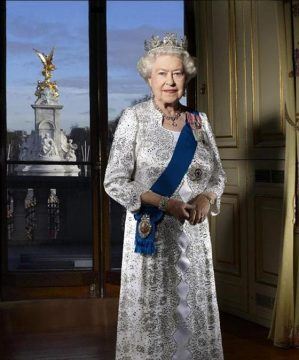Arianne Chernok at Public Books:
 In part, the distaste for thinking critically about the monarchy stems from an unlikely source. In the 1960s and 70s, social history and women’s history pioneered a “history from below,” ushering in not only a disciplinary but also an ethical imperative, one that quickly spread to neighboring fields both inside and outside the academy. A balancing swing has begun in recent years—Clarissa Campbell Orr, a historian of queenship, proclaimed in 2002 that “much is to be gained for women’s history and feminist history by looking at women at the social apex, including their roles, representations and symbolic importance for other men and women”—though studies of the elite, and especially of the monarchy (the ultra-elite), can still be regarded with considerable suspicion.4 Taking on the monarchy is too often mistakenly viewed as a willingness to embrace rather than to interrogate. This is particularly true for those conducting research in modern history, where records are available for subjects from a range of social classes and backgrounds. (Few, for example, would object to using Queen Elizabeth I as a focal point for a study of gender in Tudor England, given the paucity of other sources about women’s lives from that period.) In this context, to write about Queen Elizabeth II, or about the Windsors more generally, smacks not just of elitism but also of commercialism—a crass bid to boost sales and gain a broader readership.
In part, the distaste for thinking critically about the monarchy stems from an unlikely source. In the 1960s and 70s, social history and women’s history pioneered a “history from below,” ushering in not only a disciplinary but also an ethical imperative, one that quickly spread to neighboring fields both inside and outside the academy. A balancing swing has begun in recent years—Clarissa Campbell Orr, a historian of queenship, proclaimed in 2002 that “much is to be gained for women’s history and feminist history by looking at women at the social apex, including their roles, representations and symbolic importance for other men and women”—though studies of the elite, and especially of the monarchy (the ultra-elite), can still be regarded with considerable suspicion.4 Taking on the monarchy is too often mistakenly viewed as a willingness to embrace rather than to interrogate. This is particularly true for those conducting research in modern history, where records are available for subjects from a range of social classes and backgrounds. (Few, for example, would object to using Queen Elizabeth I as a focal point for a study of gender in Tudor England, given the paucity of other sources about women’s lives from that period.) In this context, to write about Queen Elizabeth II, or about the Windsors more generally, smacks not just of elitism but also of commercialism—a crass bid to boost sales and gain a broader readership.
more here.
